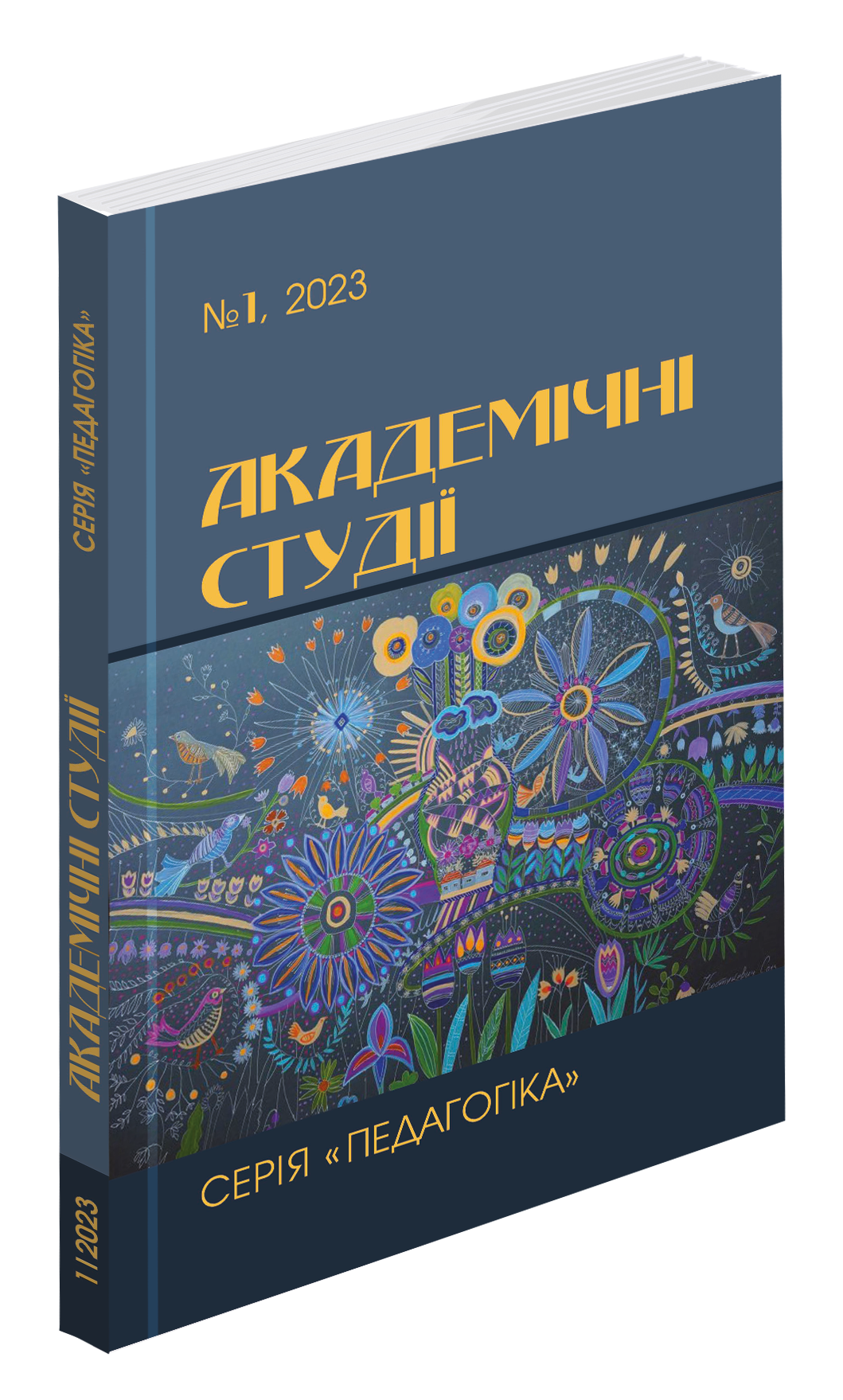Abstract
The problem of the formation of civic competence of future educators is relevant and timely for its theoretical and practical solution, since the success of civic education of the younger generation depends on its formation. The purpose of the article is to analyze the use of innovative methods in the formation of civic competence of future preschool teachers. In order to achieve the goal, it became necessary to solve the following tasks: 1) essential and structural clarification of the concept of civic competence of the teacher of special education; 2) analysis of the use of innovative methods as a means of forming the civic competence of students of the specialty 012 Preschool education in the process of studying the normative educational components «Introduction to the specialty» and «Preschool pedagogy». Research methods: analysis, synthesis, generalization. Based on the generalized approaches of scientists to the definition of civic competence and its interpretation in regulatory documents, as well as taking into account the specifics of future professional activity, the concept of civic competence of the future educator has been clarified – as a personal development of the student of education, which is based on citizenship as a leading personal quality; is the result of the system of professional training and a determinant of the formation of professional competence and is manifested in the ability to perform one’s professional functions in a highly qualified manner and to have an active social and civic position. Citizenship is defined as the formed quality of the personality of the future educator, which manifests itself in the conscious mastery of the system of civic knowledge, in deep feelings of love, protection and increase of the wealth of the native country, in a responsible attitude to the norms of social life and one’s own responsibility for observing one’s rights and freedoms and that of other persons, as well as in the pursuit of professional formation of this quality in preschool children. The use of innovative methods of teaching educational components, in particular, the study of «Introduction to the specialty» and «Preschool Pedagogy» is determined as an effective factor in the formation of civic competence among students of the specialty 012 Preschool education. We are talking about the use of project learning, case technology, discussion techniques, «associative bush», work in small groups, etc. Scientific and methodical development of recommendations for the use of innovative interactive technologies in the process of studying selective educational components by students requires further research.
References
Бех І. Д. Компетентнісний підхід у сучасній освіті. Теоретико-методичні проблеми виховання дітей та учнівської молоді: зб. наук, праць. Київ, 2002. С. 6–12.
Бубін А. О., Дурманенко Є. А. Квазіпрофесійна діяльність у формуванні в майбутніх вихователів компетентності педагогічного партнерства. Академічні студії. Серія: Педагогіка. 2022. Вип. 3. С. 34–41.
Громадянське виховання: нові виклики сучасних реалій в умовах трансформації суспільства: наук.-доп. бібліогр. покажч. / уклад.: З. М. Горова, В. В. Косенко. Суми : СумДПУ ім. А. С. Макаренка, 2011. 128 с.
Державний стандарт дошкільної освіти: особливості впровадження : навчально-методичний посібник. Харків : Ранок, 2021. 240 с.
Козій М. Б. Громадянськість – проблема актуальна та соціально-цінна: Навч.-метод. посібник. Київ: Видавництво НПУ ім. М. П. Драгоманова, 2004. 276 с.
Кравцов В., Кравцова Т. Теоретичні засади формування громадянської компетентності майбутнього соціального педагога. Наукові записки Кіровоградського державного педагогічного університету імені Володимира Винниченка. Серія: Педагогічні науки. 2012. Вип. 103.С. 27–35. URL: https://bit.ly/3AOkd3K
Магдич Т. Аналіз сутності поняття «громадянська компетентність» у системі психолого-педагогічних і лінгводидактичних категорій. Інноваційна педагогіка. 2020. Випуск 28. С. 77–82.
Мельник Н. І. Цінності громадянської компетентності як базові у професійній підготовці майбутніх вихователів. Актуальні проблеми педагогіки, психології та професійної освіти. 2018. Випуск 2. С. 3–10. URL: http://journals.uran.ua/apppfo (дата звернення: 08.03.2023).
Рамкова програма оновлених ключових компетентностей на основі життєвих навичок. URL: http://dlse.multycourse.com.ua/ua/page/15/53. (дата звернення: 09.04.2023).
Освітньо-професійна програма «Дошкільна освіта» першого (бакалаврського) рівня вищої освіти. URL: http://lpc.org.ua/wp-content/uploads/2021.pdf
Пометун О. Формування громадянської компетентності: погляд з позиції сучасної педагогічної науки. Вісник програм шкільних обмінів. 2005. №23. С.12–18.
Про затвердження професійного стандарту «Вихователь закладу дошкільної освіти» : Наказ Міністерства економіки України від 19 жовтня 2021 року № 755-21 / Міністерство освіти і науки України. URL: https://mon.gov.ua/ua/ news/zatverdzheno-profesijni-standarti-kerivnika-ta-vihovatelya-zakladu-doshkilnoyi-osviti (дата звернення: 08.03.2023).
Сурмин Ю. П. Теория систем и системный анализ. Київ: МАУП, 2003. 368 с.
Axiological Aspect of Professional Training of Future Pedagogues / V. Z. Antoniuk, N. I. Alendar, O. S. Bartkiv, O. V. Honcharuk, O. L. Durmanenko. Journal of Higher Education Theory and Practice Vol. 22(6). 2022. 156–165.

